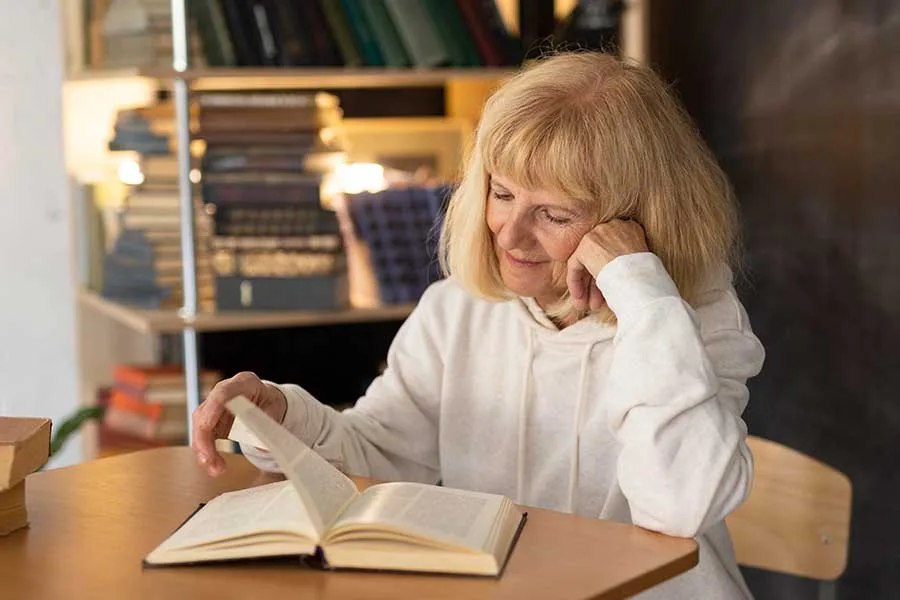A New Chapter: Going Back to School in Retirement

There is a kind of bravery in walking into a classroom when the world expects you to stay home and relax. Plenty of older adults are feeling that pull, the itch for fresh ideas and the chance to stretch their minds in ways they never could before. Retirement used to mean stepping away from the action, but now it can mean stepping toward something you had to put off for years. If you are thinking about going back to school after decades away, it helps to walk in clear-eyed about what the experience can offer, and what it cannot.
Choose Curiosity Over Obligation
It is easy to slip into thinking you need to study something “useful” or “practical” to justify your time, but at this stage, curiosity is enough. You do not have to chase a second career unless you want to, and you certainly do not need to prove yourself to anyone. Some of the richest experiences come from following interests you shelved for years, whether it is Italian literature, marine biology, or modern art. Let your classes be about discovery, not duty.
Set Your Own Terms for Success
Nobody is handing out gold stars in retirement, and that is a good thing. Success might mean finishing a degree, but it could just as easily mean feeling a little more connected to the world of ideas. When you are learning for yourself and no one else, the pressure shifts in ways that make room for real growth. Decide early what matters to you and leave behind the old yardsticks you once used to measure achievement.
Expect a Different Pace
Your brain can still fire on all cylinders, but it may need a little more time to process new information, especially if the material feels dense or technical. That does not mean you are slower; it means you are absorbing things more deeply and thoughtfully. Instead of sprinting through assignments, you might find yourself savoring them, making connections that younger students are not ready to make yet. Allow yourself that space and trust that learning looks different at every age.
Consider the Flexibility of Online Learning
If a traditional classroom setting feels too rigid, exploring an online program might be the better fit for your schedule and energy. Many online options are more affordable than their in-person counterparts and offer an impressive range of courses, whether you have the time commitment for an online psychology degree or want to immerse yourself in a liberal arts program. The flexibility to study at your own pace, whether early in the morning or late at night, can make the entire experience less stressful and more rewarding.
Stay Open to New Tools
There is no getting around it: much of modern education is tied to technology now. Course materials live online, discussions happen in forums, and even textbooks might be tucked inside an app. This can feel overwhelming at first, but it is not a wall, just a different door. Most colleges have resources to help you catch up, and it can feel empowering to master the basics on your own terms.
Protect Your Time and Energy
It can be tempting to sign up for a full load of classes, especially when you are excited, but pacing yourself matters. Retirement is supposed to be about balance, and school should fit into your life, not take it over. You will learn more and enjoy it more if you leave space for family, hobbies, and the simple pleasure of unstructured days. Think of your coursework as one piece of a bigger, fuller life rather than the center of it.
Expect to Feel Younger and Older at the Same Time
There will be moments when you feel like a college kid again, full of adrenaline after a lively discussion or staying up late to finish a project you care about. There will also be times when you feel your years, especially when classroom culture feels hyper-digital or classmates talk in ways that feel foreign. Neither feeling is wrong. Both are proof that you are growing, stretching, and refusing to be boxed in by anyone else’s idea of what retirement should look like.
Final Thoughts
Going back to school after retirement is not a fallback plan or a desperate attempt to stay young. It is an honest, hopeful choice to stay curious, to invest in yourself, and to make good on promises you might have made long ago. It is not about recapturing something lost, it is about building something new with the tools and the wisdom you have now. Your education does not have to end because a career did, and in fact, it might just be richer for it.
Image: Freepik
Annabelle Harris
Annabelle Harris is the creator of Elders Center. Her goal is to help soon-to-be-seniors and already-seniors move gracefully into their golden years with less fear and more confidence. The site features a plethora of resources to help answer common and not-so-common questions about ageing.
